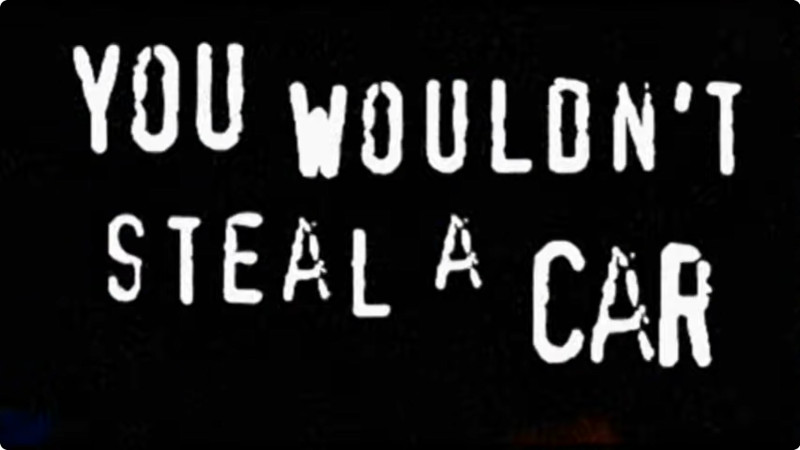The Irony of Piracy: How an Anti-Piracy Campaign Used a Pirated Font

In the early 2000s, the DVD industry faced significant challenges posed by piracy, particularly the rampant distribution of counterfeit DVDs and the rise of downloadable movies. This concern prompted industry leaders to launch a widespread anti-piracy campaign, which became a recognizable part of the cultural landscape of that era. Many individuals may recall the striking warning that appeared at the beginning of countless DVDs: an edgy font displayed against a stark black background, stating, You wouldnt steal a car This message was intended to resonate deeply with viewers and dissuade them from engaging in illegal downloading or purchasing pirated copies.
Fast forward to the 2020s, and this campaign has not only become a nostalgic relic but has also morphed into a meme, shared across social media platforms. Interestingly, many people now encounter this phrase without any awareness of its original context or the intentions behind it. However, a recent revelation has added a delicious twist to this cautionary tale: the very font that was used to deliver this anti-piracy message was itself pirated.
The font in question is named FF Confidential, a creation of renowned type designer Just van Rossum. Interestingly, Just van Rossums brother, Guido van Rossum, is widely known as the creator of the Python programming language. Despite the initial intention of the campaign to uphold intellectual property rights, it turns out that the font displayed was not actually FF Confidential but rather a pirated version known as XBAND Rough. This surprising twist raises questions about the oversight that allowed such a blatant contradiction to go unnoticed for nearly two decades.
While it is somewhat amusing to witness an anti-piracy initiative caught in a web of its own making, this incident also highlights a more significant issue within the realm of intellectual property. The complexities of modern copyright laws can be so intricate that even the most well-intentioned campaigns may inadvertently fall victim to the very rules they seek to enforce. Those involved in this case are unlikely to advocate for changes in the intellectual property landscape, yet many experts agree that a reform is long overdue.
For those who find copyright issues perplexing, navigating this convoluted terrain can indeed give anyone a headache. As discussions around intellectual property continue to evolve, it is essential to consider how such stories reflect the challenges that creators face in protecting their work while simultaneously adhering to the existing laws.

























